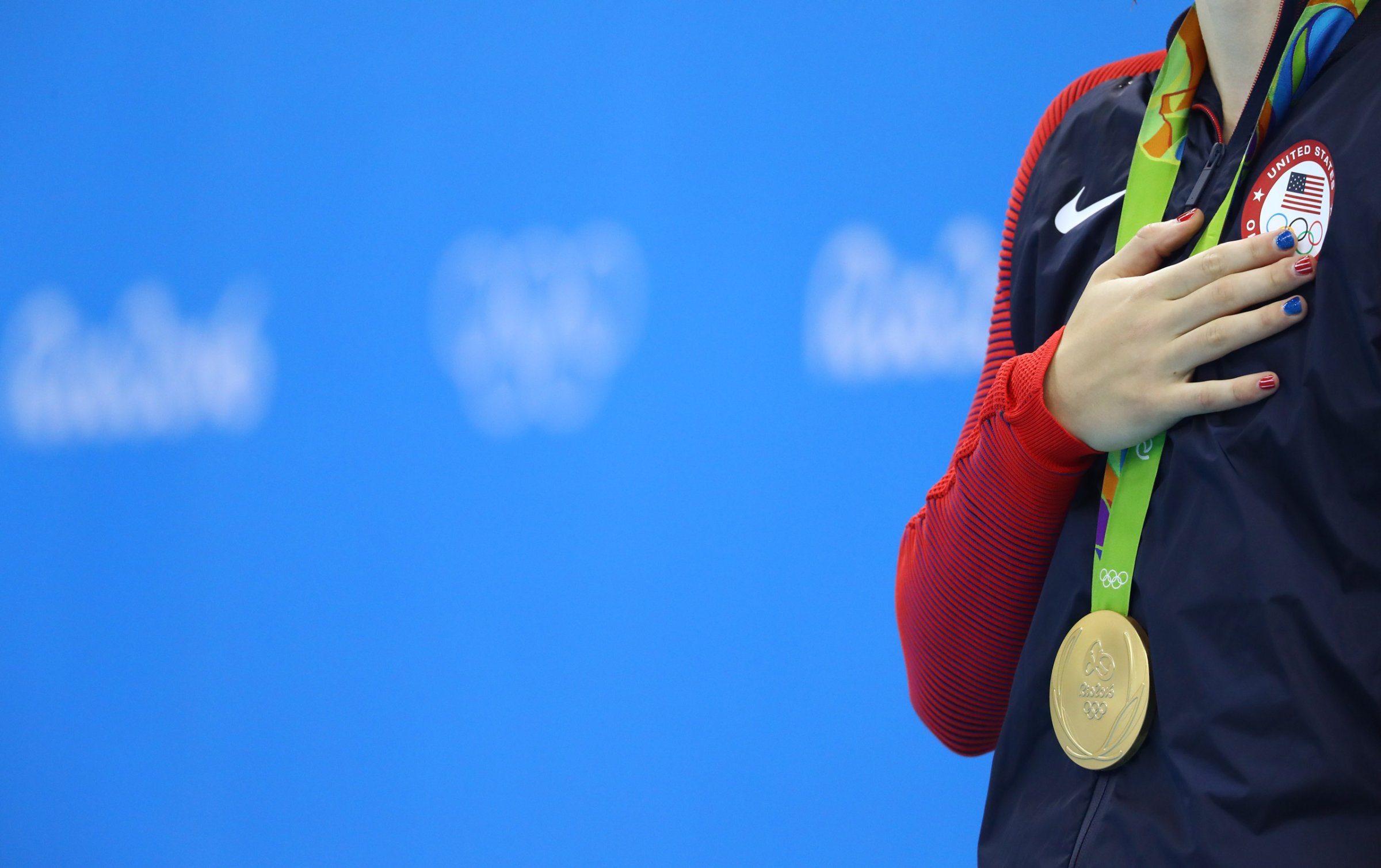
There’s no TV event quite so massaged as the Olympics on NBC. Sure, televised NFL football (and particularly the Super Bowl) comes with plenty of bells and whistles, but games generally come over the air live and with a focus, while the game is on, on the actual gameplay.
NBC’s contract for the Olympics is a longstanding one and currently runs through 2032, so anyone who’s not used to the way they broadcast by now should get accustomed to weird delays, chopped-together footage in primetime, and a fundamental lack of context throughout. Most cycles, the network has a fairly good case for tape-delaying the opening ceremony and various key events, as they’re airing at times deeply inconvenient to U.S. viewers. But with Rio only one hour ahead of the U.S. eastern seaboard, there was no real reason this time that Americans with internet access could find out about various gymnastics triumphs many hours before footage was available.
Of course, many people don’t follow the news online. To them, Simone Biles’s high-flying success was unspoiled when it aired hours after the fact. But it’s not “spoilers” that make the less-than-live Olympics dispiriting. It’s the way the footage is cut together, with the hours at NBC’s disposal apparently used to convert a global sporting event into a narrative about American dominance.
Yes, the U.S. is currently leading the medal count to a degree that focus on our squad would be merited regardless. And a little national pride (or more than a little!) is understandable and great. But the obsessive focus on America is a state of mind that refuses to allow meaningful information to penetrate. For instance, on Thursday’s primetime broadcast, we learned about American runner Kate Grace’s mother’s line of workout videos and got a lengthy cutaway to said videos. An American who wasn’t even in the race got vastly more promotion than any of the non-American athletes.
What does it mean to be the best—as in the case of champion swimmer Michael Phelps, whose life story has been plumbed far past the point of meaning—when your competitors are, in the main, faceless obstacles to overcome? The opening ceremony hosts’ apropos-of-nothing rambling about Hamilton and ignoring massive geopolitical themes in the broadcast set the tone: NBC seems largely disinterested in other countries.
This is nothing particularly new, but it’s frustrating all the same. To go all over the world every two years only to learn that Americans are distinctive and, give or take an Usain Bolt, no one else really leaves an impact, is a wasted opportunity. The Olympics we’re constantly hearing about is one in which the greatest from all over the world come together in a celebration of all the world’s talent. For American viewers, that event can only be a hypothetical.
NBC’s point-of-view on their coverage seems to be that everything is fine! After all, their tape-delaying footage into prime-time forces viewers to play through each ad. But while it’s unlikely that any network concerned with making money would ever overhaul the fundamental structure of the day (in the end, we’re stuck with marquee sports in prime-time, I suspect), it’s hard to imagine any other network growing quite so addicted to ginning up narrative. The network’s Olympic marketing chief calling the games “the ultimate reality show and mini-series wrapped into one” (and noting they appeal to women viewers, who care more about “the journey”) indicates that the Olympics are, to their broadcaster, neither news nor sports. They’re an entertainment product.
Which wastes another great potential upside of the Olympics—that they’re a fortnight’s worth of events during which anything could happen. Were NBC not so obsessed with crafting the Olympiad into a story of American greatness, they might not have been caught so flat-footed by the compelling story of Ryan Lochte; Matt Lauer recently raised hackles outside the U.S. by conveying to Bob Costas Lochte’s representation of Brazilian cops as less “thorough” than American ones. Newsgathering on the fly is obviously incredibly tough, but it’s easier when some segment of the massive unit of journalists you’ve brought to Rio are tasked with something other than feel-good packages. There’s no room for spontaneity—real joy or real surprise—in NBC’s broadcast. It evaluates two weeks’ worth of the world’s most elite competition from the point-of-view of someone just looking to get it over with.
More Must-Reads from TIME
- Breaking Down the 2024 Election Calendar
- How Nayib Bukele’s ‘Iron Fist’ Has Transformed El Salvador
- What if Ultra-Processed Foods Aren’t as Bad as You Think?
- How Ukraine Beat Russia in the Battle of the Black Sea
- Long COVID Looks Different in Kids
- How Project 2025 Would Jeopardize Americans’ Health
- What a $129 Frying Pan Says About America’s Eating Habits
- The 32 Most Anticipated Books of Fall 2024
Contact us at letters@time.com